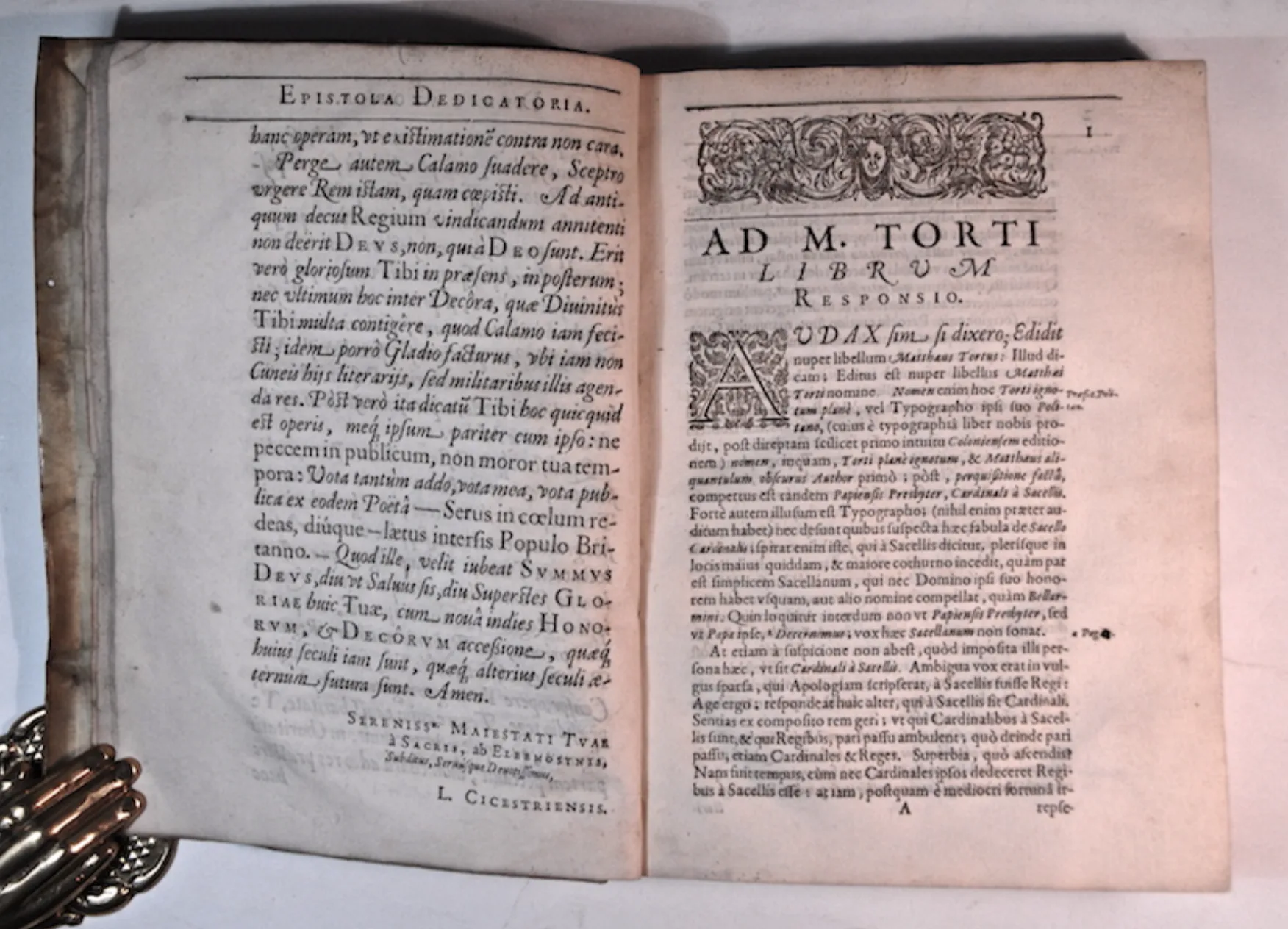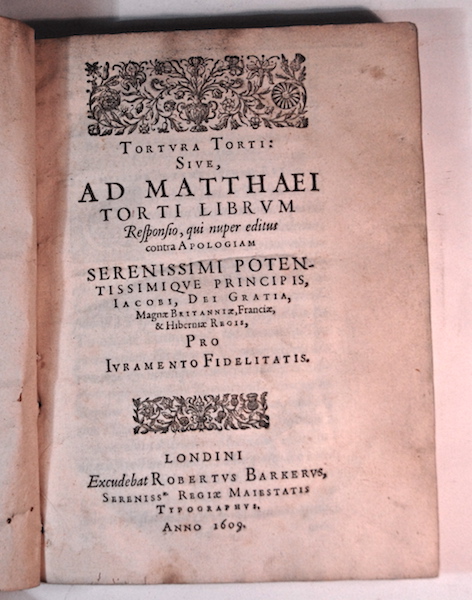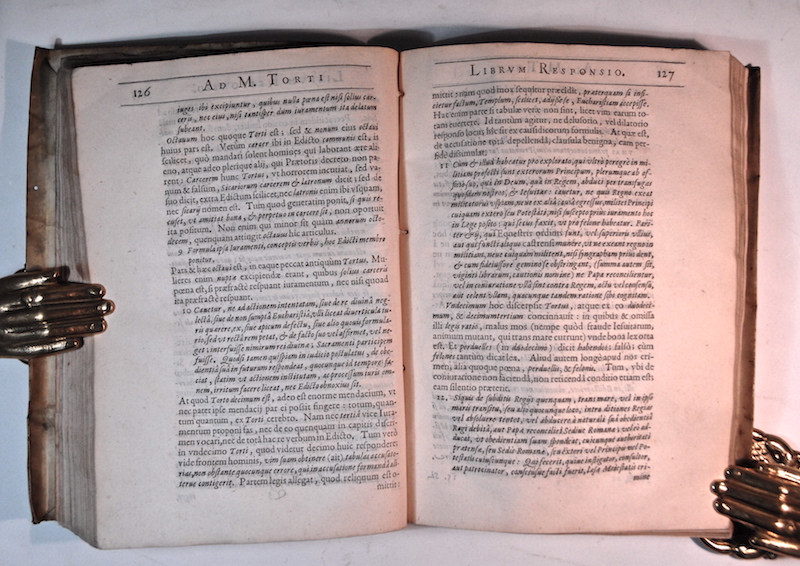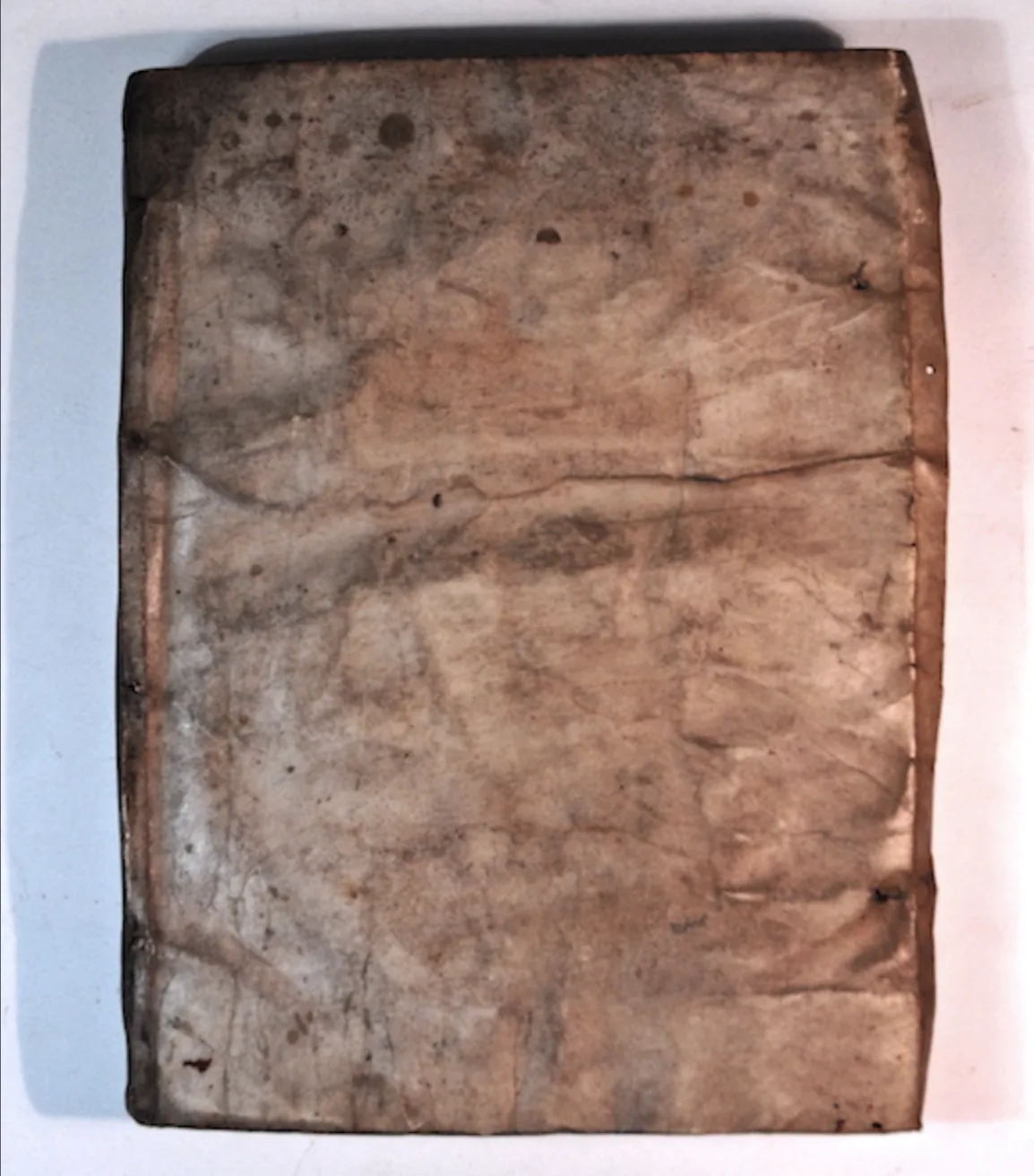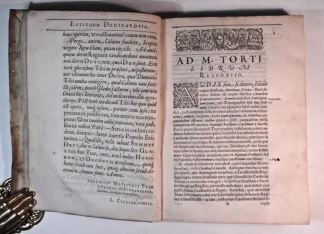ANDREWES, Lancelot
Tortura Torti: siue, Ad Matthaei Torti librum responsio, qui nuper editus contra Apologiam serenissimi potentissimique principis, Iacobi, pro Iuramento fidelitatis.
London, Robertus Barkerus, serenissæ Regiæ Maiestatis typographus, 1609£1,500.00
FIRST EDITION, first issue. 4to. pp. [viii], 402, [ii]. A A-3D 3E². Roman letter, some Italic and Greek. Woodcut ornaments on title, woodcut head and tailpieces, floriated woodcut initials, Inscription “George Dethick” on verso of last with his name in latin above and Greek below, a further Greek inscription punning on his name beneath. Light age yellowing, very minor dust soiling in places. A very good, well margined copy, crisp and clean, stab bound in its original limp vellum with yapp edges, remains of ties, a little soiled.
First edition, first issue with the errata, of Lancelot Andrews’ important refutation of Cardinal Bellarmine’s response to the Oath of Allegiance. Andrewes (1555-1626) was one of the leading figures of the Anglican Church, a skilled controversialist, deeply scholarly, and proficient in fifteen languages. Sometime Master of Pembroke, Cambridge, Fellow of St John’s, Oxford, and Bishop of Winchester, he narrowly missed being Archbishop of Canterbury. A Privy Councillor, his name appears first in the list of divines appointed to produce the King James Bible, and Fuller says of him that “the world wanted learning to know how learned this man was”. He was elegised by Milton and frequently consulted by Bacon. He was anti-Papist, and carefully defended the interests of the Church of England. In 1606, after the Gunpowder Plot, Parliament instituted a new Oath of Allegiance, targeted at Catholics. Cardinal Bellarmine issued an attack on the institution of this Oath, prompting an anonymous Royal defence (‘Triplici nodo, triplex cuneus’) published the following year. Bellarmine replied at the Pope’s behest in 1608, under the name of his chaplain, Matteo Torti; prompting James I to commission Andrewes to compose a full reply to supplement the King’s ‘Apologie for the Oath of Allegiance’. “James’s desire not to see his sovereignty diminished led him to pursue and even intensify Henry VIII’s policy regarding the requirement of loyalty to the crown, and in terms of Ecclesiological consequences, made it all the more urgent to reconsider the notion of the Church. The papacy on the other hand was keen to defend the Roman Catholic tradition, based on the primacy of the Pope’s jurisdiction and indirect temporal power. To highlight the king of England’s interference in the lives of English Catholics, Bellarmine evoked the creation of harsher penal laws related to the oath (of Allegiance), which betrayed a discriminatory , intolerant attitude. .. At this stage other authors, including Robert Parsons and his adversary William Barlow, Bishop of Lincoln and one of the King’s Chaplains, joined the war of words. On the Anglican side, James called on the best known and unquestionably the best read of the pamphleteers, Lancelot Andrewes, to pen a refutation of Bellarmine’s work. In 1609, Andrews published in Latin Tortura Torti.” Bernard Bourdin ‘The Theological-Political Origins of the Modern State’. Andrewes’ work, punning in his title on the pseudonym Bellarmine had adopted, Tortura Torti was published in 1609. Andrewes was a significant influence on English prose; he greatly infuenced T.S. Eliot, who commends his writing as subtly communicating his philosophical standpoint: “It is only when we have saturated ourselves in his prose, followed the movement of his thought, that we find his examination of words terminating in the ecstasy of assent” (from Eliot’s essay, ‘For Lancelot Andrewes’). A very good entirely unsophisticated copy.
STC. 626. Milward, Religious Controversies of the Jacobean Age, 294. Lowndes I, p. 44 “considered unanswerable.”In stock


